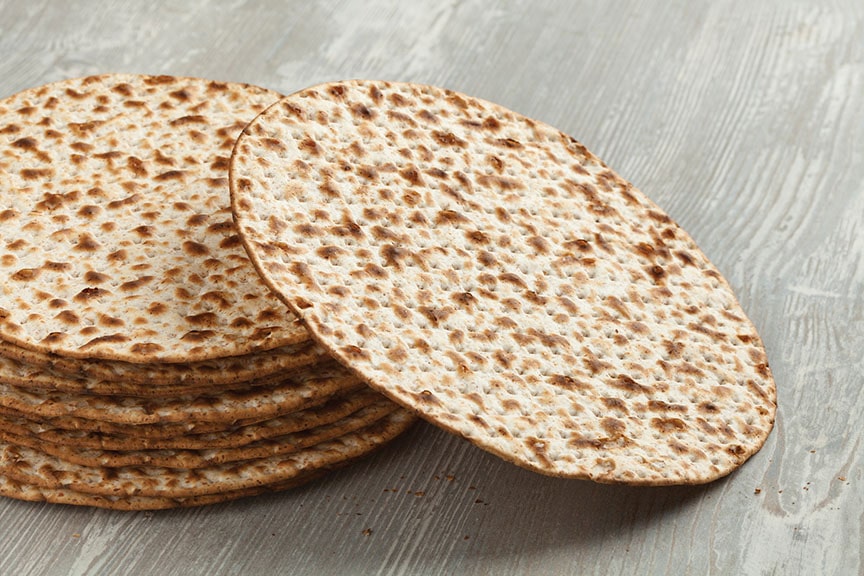
I’m fascinated by excess, not excess of bad things but excess of good things. Take freedom, for example, one of life’s finer inventions. Freedom is best appreciated when one contemplates not having it. Could anything be worse than to be imprisoned? Is there a greater pleasure than to live one’s life utterly free?
The Passover holiday, which is right around the corner, revolves around this supreme human concept of freedom. It tells the story of one people’s God-assisted journey from the hell of slavery to the heaven of liberation.
But the central ritual of the holiday — eating dry, unleavened matzah — suggests the very opposite of freedom. Matzah is bread that is imprisoned, forced to contract and limit itself instead of flourishing into a spectacular baguette as one might see at a Pain Quotidien.
How do we reconcile the celebration of freedom with a ritual of self-deprivation?
Consider your email inbox. In an insightful essay in The New York Times, Margaret Renkl reflected on the early years of this eye-opening technology, “that brief, sunny time when email was still electronic mail: long, thoughtful letters that got delivered, miraculously, in a blink.”
What started as liberation, however, devolved into suffocation. It became too much of a good thing: “Reply-all responses to bulk messages, shipping notifications, fund-raising pleas, systemwide reminders and, of course, spam.” That magical technology, Renkl reminds us, “is now just a way to be at the beck and call of anyone, and any robot, with an internet connection.”
Anything good, in other words, whether technology, a chemical pain-killer or a notion like freedom, can turn into a source of gluttony. The matzah represents the flip side of gluttony, an opportunity to experience the silent virtues of modesty and humility.
Two years of deprivation forced on us by the COVID pandemic have given us an extended taste of these silent virtues. But it wasn’t our choice; it was imposed on us. A virus 10,000 times smaller than a grain of salt had the nerve to tell us that we could no longer do whatever we wanted anytime we wanted. This was a virus, not a rabbi, giving us lessons in humility and modesty.
Jewish rituals don’t force their lessons on us. We’re asked to choose them, to make them intentional. The ritual of eating dry, unleavened matzah for eight days offers us a chance to internalize the subtle, even liberating power of limits.
Jewish rituals don’t force their lessons on us. We’re asked to choose them, to make them intentional. The ritual of eating dry, unleavened matzah for eight days offers us a chance to internalize the subtle, even liberating power of limits.
There’s a misconception that Jewish values align perfectly with the values of free societies. They don’t. If unbridled freedom is the modern way, setting ethical boundaries on freedom is the Jewish priority. If the pursuit of happiness is the modern focus, Judaism leans to the pursuit of meaning. And if a focus on rights is the modern ideal, Judaism leans to responsibility.
In short, these modern ideals of unbridled freedom and the seeking of rights and happiness are wonderful, until they’re not. The matzah serves as a speed bump to bring that lesson home. It is our intentional reset button, an opportunity to reflect on the paradox of how limits can help us grow.
“Matzah represents the antidote to ego,” Rabbi Mendy Herson writes on Chabad.org. “The matzah is simple, made of only flour and water, representing humility and openness to self-improvement.” He contrasts this with the “puffed-up sense of self represented by the bloated, risen dough, the loaf of bread.”
The most compelling lessons in life are often those that are least obvious. How limits can help us grow and thrive is not self-evident. Maybe that’s why our tradition gives eight full days to reflect on it.
There’s a misconception that Jewish values align perfectly with the values of free societies. They don’t. If unbridled freedom is the modern way, setting ethical boundaries on freedom is the Jewish priority.
During those eight days, we can work on finding what Rabbi Herson calls a “matzah mentality” in order to leave “our personal Egypt.” We might start by identifying the excesses in our lives, the “too much of a good thing” ingredients that may unwittingly stunt our growth.
Most of us have too much technology, too many distractions, too many choices, too many convenient excuses to escape our inner life. This exterior noise comes camouflaged as freedom, but it can overwhelm us.
These noisy days right before Passover—when we rush around cleaning out the chametz, shopping for Passover foods and preparing lavish Seders—are meant to bring us to a place of quiet contemplation. This enables us to ask some essential questions, such as: What do we have too much of? What do we have not enough of? How can limits add meaning to our lives?
And, of course, the ancient Passover question: When do we eat?























 More news and opinions than at a Shabbat dinner, right in your inbox.
More news and opinions than at a Shabbat dinner, right in your inbox.